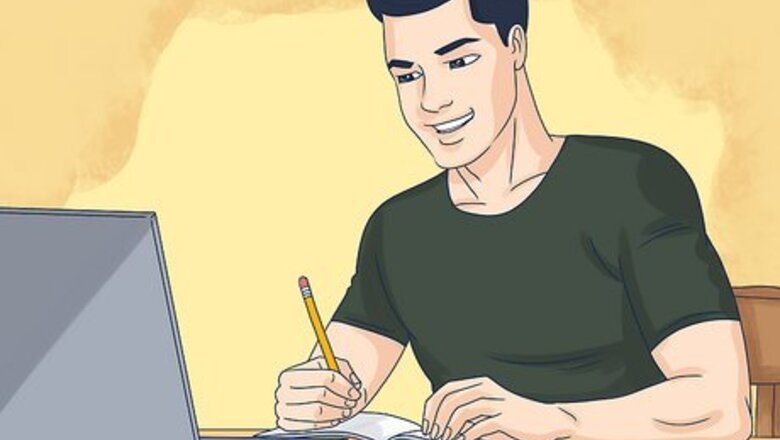
views
- There are no formal requirements or degrees to become a paranormal investigator, but you do need to know about the paranormal.
- Meet other local investigators and attend paranormal events to get your foot in the industry.
- Learn how to use the popular paranormal investigation gear, like cameras, electromagnetic meters readers, and ion readers.
- You can also lead ghost tours or take your paranormal knowledge and experiences to YouTube.
Studying the Paranormal

Take an online course if you’d like, but know it’s not mandatory. There is no universal educational path you can follow to become a paranormal investigator. There are plenty of paranormal investigator classes and programs out there, but none of them are accredited by any formal organizations. You can totally take an online course if you’d like, but it’s by no means required to get into the field. Paranormal Forum and the ghost hunting subreddit are popular forums for paranormal investigators. There are tons of popular courses on paranormal studies and investigation on sites like Udemy. If you’re going to college and you’d like to study something that may be helpful in paranormal investigation, consider majoring in psychology, history, English, or the physical sciences. You can learn everything to know about paranormal investigation from the library, YouTube, online forums, and sites like wikiHow—for free!
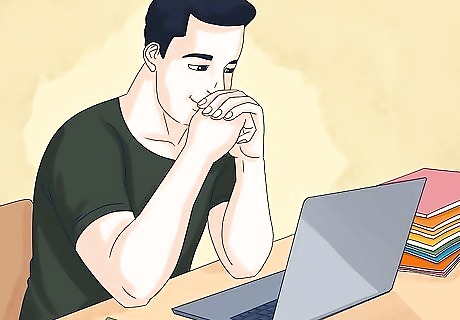
Study and read about various paranormal topics. Pick up books about the paranormal and read as much as you can. Watch interviews with established paranormal investigators, and pick up shows like Ghost Hunters, Ghost Adventures, and Paranormal Investigators to get a sense for what it’s like to work as an investigator. Learn as much as you can to become familiar with the field. You may want to learn about: Ghosts and poltergeists, including the mythology and history of ghosts in each country. Telepathy, precognition, and clairvoyance. Many mediums and fortune tellers also work also paranormal investigators. Near-death experiences, reincarnation, and ESP (extra-sensory perception). Cryptids (creatures that may exist but aren’t documented, like the Loch Ness Monster), religion, and human psychology.
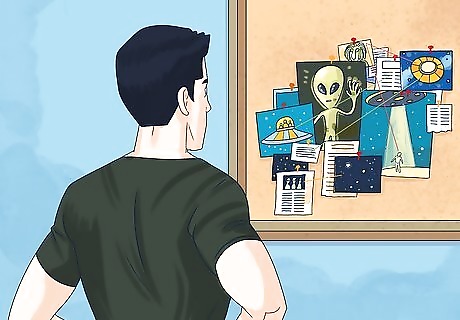
Choose a specialty if you’d like to set yourself apart or have a talent. If you’ve had a personal run-in with a UFO, perhaps you’d have an advantage investigating UFO sightings. If you’ve got an uncanny knack for interpreting the presence of ghosts, perhaps you’d make an excellent ghost hunter! But even if you don’t have a natural knack, you can still choose an area to focus your studies and specialize. You could focus on: Ghosts and hauntings. Poltergeists and disturbances. Cryptids and animal tracking. UFOs, abductions, and alien sightings.
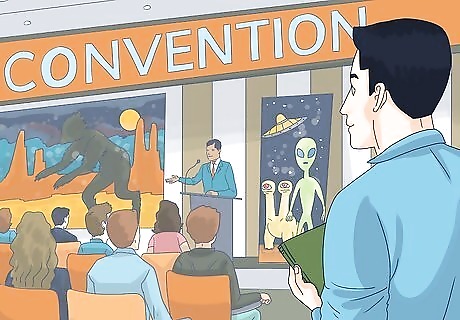
Attend paranormal meetups and conferences to learn more. Look online for local paranormal societies, organizations, and events. Get yourself out there and introduce yourself to people! If there are any paranormal conventions happening near you, attend them. Meet as many people in the field as you can while you continue to learn more. The Haunted America Conference is one of the largest and most popular conventions for the fans of the paranormal. If possible, ask a professional paranormal investigator if they have any internships or apprenticeships available.
Learning to Use the Equipment
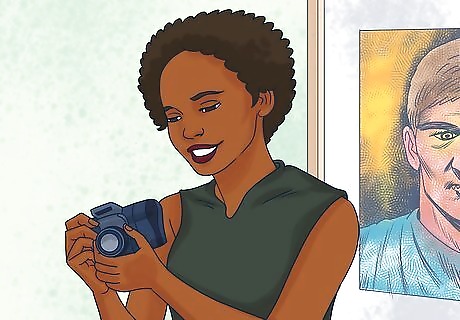
Acquire a camera and become familiar with the settings. As a paranormal investigator, it’s essential that you document everything during your investigations so that you can prove your theories. Feel free to start off with the camera on your phone, or consider buying a DSLR so that you can customize settings and make adjustments on the fly to spot anomalies. You may also want to invest in a GoPro so that you can record everything you see while you explore potential paranormal activity. Don’t go out and invest thousands of dollars in equipment before you start working! You can even try renting or borrowing some equipment to get used to it.

Get your hands on a thermal imaging device if you’re hunting ghosts. Thermal imaging tools are key components in a ghost hunter’s toolbox. They allow you to see temperature changes in your environment so that you can look for hotspots. The theory is that ghosts and poltergeists can cause unexplainable changes to the air around them. You may want to purchase a high-end thermostat to record temperature changes more precisely.
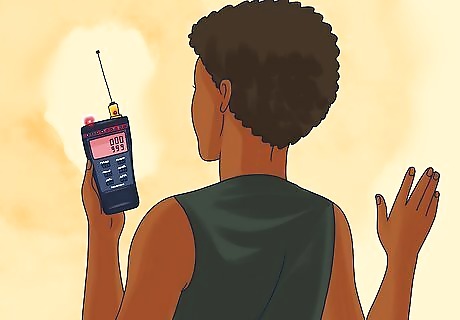
Acquire an electromagnetic meter or REM pod to measure disturbances. Electromagnetic meters and REM pods scan the air for changes in the electromagnetic field. According to paranormal investigators, many paranormal phenomenon can only be detected by measuring fluctuations in the magnetic and electric field around you.
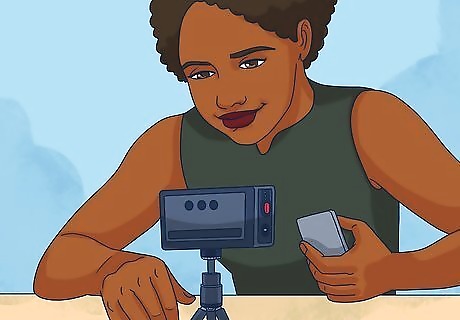
Experiment with an ion detector to spot changes in the air. Ion detectors are controversial in the ghost hunting community, but they’re interesting if you want to toy with the cutting-edge gear! Ion detectors measure negative ion particles in the air, which supposedly indicate the presence of paranormal activity.
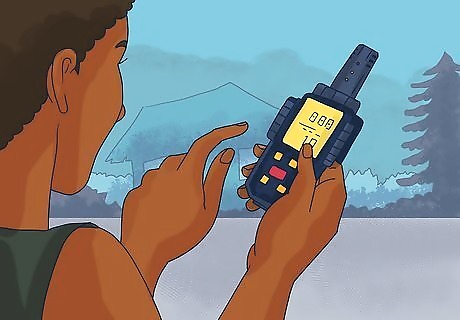
Purchase a Geiger counter to find radioactive anomalies. Geiger counters are small meters that detect radiation. Many ghost hunters and paranormal hunters will scan environments for radiation signals that indicate cryptids, poltergeists, specters, and other spooky spirits may have recently visited. Everything emits some kind of radiation, so don’t worry that you’re being exposed to anything dangerous if you spot some minor radiation. Geiger counters measure radiation in Becquerels (Bq) or Curies (Ci). However, radiation dosages are measured in Sieverts (mSv). Anything higher than 20 mSv is considered dangerous.
Monetizing Your Skills
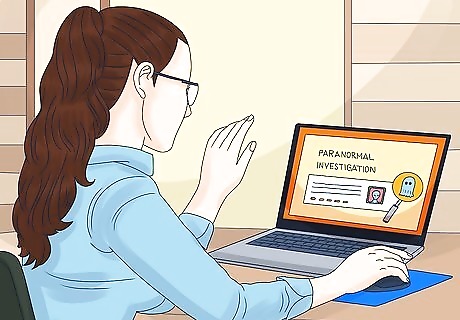
Market yourself and find clients to work as a private investigator. The most straightforward way to get paid as a paranormal investigator is to start a personal business and build your brand to attract work. Create your own website, post your services on Facebook, and wait for the calls to start coming in! As you continue to get clients and reviews, you’ll build a bigger local following which will make it easier to continue to get clients.
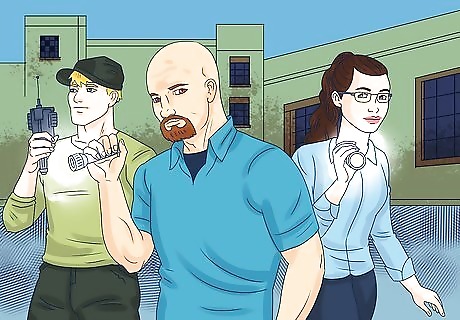
Join another team or crew on their investigations. If you don’t want to strike out on your own just yet, ask other investigators you meet at meetups or conferences if you can join them on their next mission. A lot of investigators start off by learning from other experts who are already established in the field, so help in any way you can and learn as much as possible! You could even post online in local meetups or forums to let folks know you want to learn how to investigate the paranormal. You can also reach out to local paranormal investigators by calling or emailing them to see if they’re willing to take you on a ride-along.
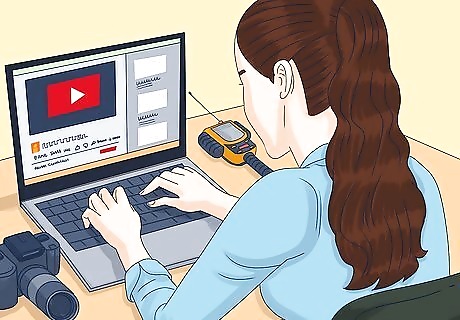
Document your investigations and post them on YouTube. Many paranormal investigators just do this as a hobby and post their escapades on YouTube. Film yourself exploring and investigating haunted places, looking for cryptids in the wild, or compiling ghost hunting data you’ve collected. Viewers will catch on and tune in!

Take your skills to a paranormal tour company and work as a guide. Your experience, knowledge, and passion for the paranormal will be more than enough to qualify you for tour guide work. If you live in an area with haunted mansions, a history of paranormal activity, or alien sightings, contact a local tour company to see if they’re hiring. This is a great option if you really love talking about the paranormal and interacting with other people.
Performing an Investigation
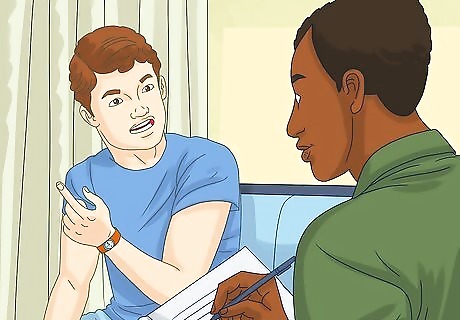
Conduct interviews with witnesses of the event. Whoever reported the haunting or disturbance saw or experienced something so scary that they felt the need to contact you! Ask them to describe what they saw, felt, heard, and smelled during the event. Take notes, but don’t take everything your witnesses say as fact—remember, it’s your job to get to the truth. The witnesses will give a good sense of what you should spend your time focusing on. If two members of a household mention a toy doll giving them the creeps, you probably want to examine it!
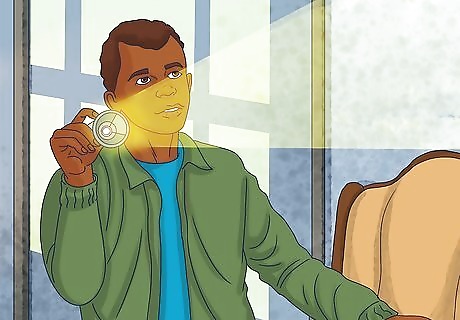
Look for logical causes that explain the phenomena. People are flawed. Our observational abilities aren’t perfect, and there are all kinds of different potential reasons someone might believe they’ve experienced something paranormal. Begin every investigation by assuming there’s a non-paranormal explanation and seek to explain it. This way, you’ll quickly rule out any non-starter cases. Strange noises may be explained by house settling, animals in the walls, or changes in weather causing building materials to crack. Poor central air systems, inefficient ductwork, and drafty windows can explain temperature changes. Gas leaks, carbon dioxide, and radon can warp someone’s experiences and make people think they’re seeing or hearing things that aren’t there. Dementia, Alzheimer’s, vision problems, bipolar disorder, and schizophrenia can all cause people to see, hear, or experience things incorrectly.
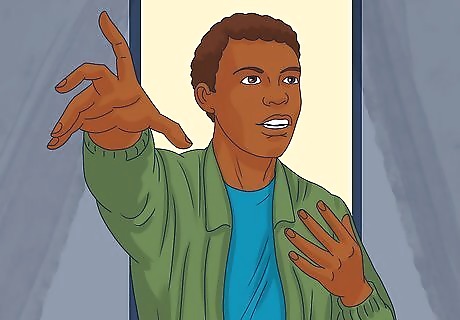
Invite the paranormal entity to show you their presence. If a paranormal being is present, making yourself known and letting them know you’re open to meeting them is a great way to trigger a paranormal event. If you can experience something firsthand, you may get all of the evidence you need right there! Use your notes from the witness to guide your interactions here. If they mention feeling like something was angry, you might say, “Hello, I know you’re upset, but I’m not here to hurt you.” Try asking for proof. You might say, “If you’re here, can you give me sign? Can you make a noise or knock something over?”
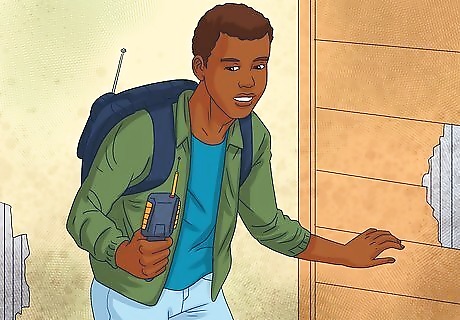
Take readings from your equipment to spot anomalies. Use your EMF reader, Geiger counter, thermal camera, and/or whatever else you’ve purchased to scan the environment. If you spot any strange readings that cannot be explained by logic or science, it is possible that you’ve encountered something paranormal. A hot air duct or an increase in electromagnetic waves around a radio are probably not paranormal events. It’s important to take all of your evidence into account, though. If you’re performing a larger investigation, it may be helpful to take notes or build a map of the site.
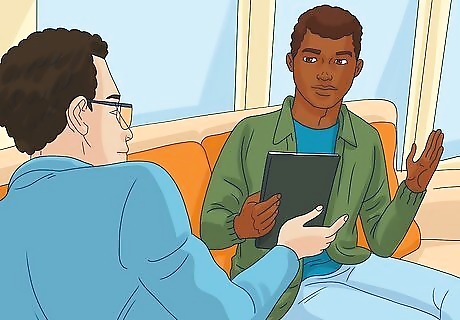
Make a conclusion based on your evidence and intuition. Take everything you’ve experienced, documented, and felt to determine whether or not there has been any paranormal event. If there has, explain what it is, how the client may get rid of it (if possible), and how worried they should be (remember, there are a lot of friendly entities out there). It is perfectly okay to have an inconclusive investigation. If your client is paying you, type up a short report explaining everything you experienced and measured.










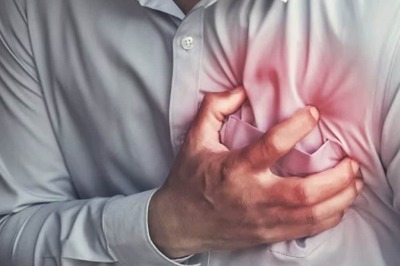






Comments
0 comment